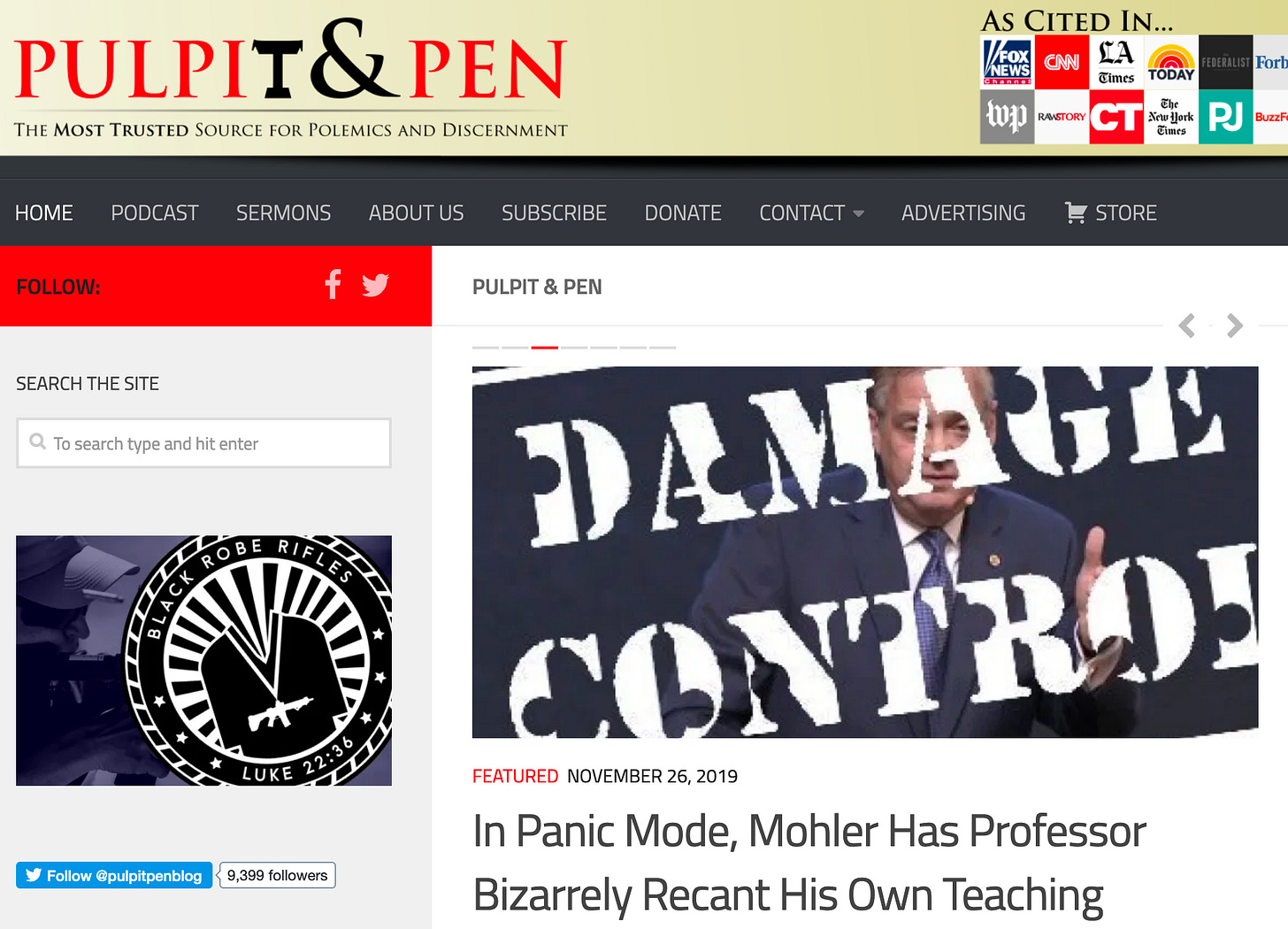Discernment Heresy

About 6 years ago a friend of mine told me about a Southern Baptist blogger whose trolling of fellow SBCers was legendary. This guy would write thousands of words every week about the evils of Calvinism and the seminaries that taught it. He would live in the comments section bandying about conspiracy theories about why professors were actually fired. Hi…


